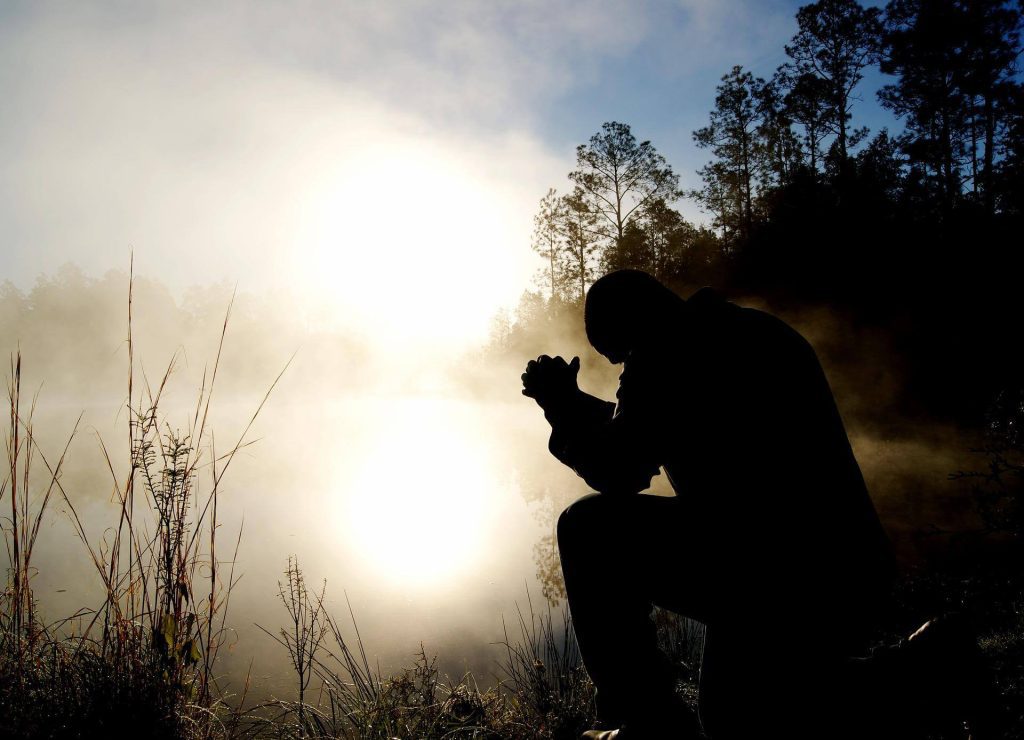Introduction
In Part 1 of History of Buddhism, a discourse was introduced to lay devotees called Advice to Sigālaka1. This discourse contains all the necessary advice to lay devotees on how to lead one’s life. In fact, if a lay devotee practices all that is stated in the discourse, the level of morality will be higher than another lay devotee who only follows the 5 precepts. This is because this discourse covers not only personal morality, it also teaches how to interact with the people around you, including your parents, family and colleagues. Hence, Refuge In Dhamma deems this discourse as the most important one for lay devotees.
For this series, it is very important to read in sequence for easy understanding and not to skip any article as they are closely linked to one another.
In Part 4 of the discussion of this discourse, we will be discussing about how to protect the 6 directions.

Backstory
One morning, near Rājagaha, a person called Sigālaka was revering the 6 directions: east, south, west, north, below, and above. The Buddha was staying in the Bamboo Grove at that time and when he went for his alms round, he saw this person and asked him the reason for doing this ceremony. Sigālaka told the Buddha that he was following his father’s instructions before he passed away. Then, the Buddha proceeded to teach him the correct way to revere the 6 directions.
6 directions
Protect the 6 directions
After teaching Sigālaka about morality, wealth protection and types of friends, the Buddha finally taught him the correct way to protect the 6 directions. What was taught in the first 3 parts of the discourse was necessary as they form the basis for protecting the 6 directions:
● Without morality, the person will not be able to carry out the duties stated below.
● Without wealth, the person will be living in poverty and when a person is in poverty, morality and duties will be the last thing on the mind as survival will come first.
● Without knowing the different types of friendship, a person can easily be led astray, lose wealth and end up in a very bad state. In such a state, there is no way for the person to support oneself, whether mentally or materially, not to mention supporting family, friends and others.
Eastern direction representing parents

Children should minister to their parents in the follow ways:
a) Support parents who supported you;
b) Duty towards parents;
c) Maintain family lineage and tradition;
d) Be worthy of one’s inheritance;
e) Make donations on behalf of parents after they have passed away.
In the 21st century, cost of living and work hours have increased compared to the past. In asian culture, there is also a need to give a portion of the income to parents as repayment for their efforts in raising children. It is not difficult to financially provide for parents so long as the children are working.
The more difficult task is to take care of parents when they are old and have illnesses that make movement difficult. This is the same as parents taking care of babies who are incapable of taking care of themselves. The difficulty lies in the increased work hours of modern society and smaller family nucleus. More time spent working means lesser time for family members, whether for children or parents, and smaller family nucleus means it is more difficult to get help from other family members.
The modern solution for this problem is to send parents to old folks’ homes or day care centres for elderly. This is in fact a good solution as elderly parents have people to take care of them in these homes and centres and there are also companionship and activities in these places to occupy their time. Day care centres are similar to day care centres for toddlers which can free the working adults from worry and still be able to have interaction in the evenings when they pick up their children or parents from the centres.
The real problem lies in old folks’ homes. There may be a valid reason to send elderly parents to old folks’ homes because the children are working very long hours and they have no time in the work days to take care of their parents. However, if the children fail to visit their parents even during their off days and holidays, it will be similar to sending your children to a boarding school and not allowing them to go home during holidays.
Therefore, regardless of how busy people are, they should always find time to accompany their parents and serve them in the ways stated above.
Parents should reciprocate with compassion by:
a) Restraining their children from wrongdoings;
b) Guiding children towards good actions;
c) Training children in a profession;
d) Supporting the choice of a suitable spouse;
e) Handing over the inheritance in due time.
One should not expect their children to serve them in the 5 ways mentioned above if they did not do their duty as parents. One sore point between rich parents and children is that parents hold onto their wealth until their death afraid that the children will abandon them or squander the money away once the wealth is passed to the children. This is the reason why the Buddha advised the children to be worthy of their inheritance and to support their parents so that parents can safely pass on the inheritance without any worries.
Another interesting point is that parents should support the choice of a suitable spouse. What a suitable spouse entails is highly debatable, therefore, the Buddha gave guidance on the duties of husbands and wives as the western direction to dispel any disagreements.
Only when both parents and children perform their duties will the eastern direction be protected and made peaceful and secure.
Southern direction representing teachers

Students should minister to their teachers in the follow ways:
a) Rise for teachers;
b) Be of service to teachers;
c) Be attentive during lessons;
d) Look after teachers;
e) Master the skills being taught.
In the primary and secondary schools in asia, students rise and greet teachers before lesson starts. This is a good practice as it helps the students settle down and teaches them respect. However, beyond the secondary levels, students do not need to do this anymore. Whether it is necessary in tertiary education is up for debate but the basic respect for teachers should not be lost regardless of education level.
Students should volunteer to help teachers to perform tasks as much as possible. Having said this, the services that teachers really want from students is for them to be diligent in their work and to listen attentively during class. Even if the students are slow in understanding the lessons taught, teachers are usually patient enough to give extra lessons and use different pedagogies to let the slower students grasp the concepts. If, after making enormous effort, the student is still unable to grasp all the concepts taught, it is fine for teachers as they know every student has different aptitudes. For teachers, mastering the subject is not as important as the effort exerted by the students.
As schools no longer teach values explicitly, it is an uphill task for teachers to ensure students learn the soft skills of attentiveness and tenacity, which are very important personal traits to ensure success in whatever is being embarked upon.
On the other hand, teachers should reciprocate with compassion by:
a) Being well-trained;
b) Fully grasping the subject taught;
c) Teaching all the knowledge in the subject;
d) Recommending students to their friends and colleagues;
e) Providing protection in all directions.
Teachers not only should be fully qualified, they should also have full grasp of the subjects they are teaching. This is not a big problem in modern society as most countries have comprehensive teacher training programmes and teacher skill upgrade courses.
When asked for advice, teachers should also provide them freely. In fact, advice requested from teachers can range from study tips, counselling to career directions. Advice from teachers should put into consideration the students’ aptitude and character.
Schools in most countries are usually a safe environment as strangers will not be allowed to roam the school grounds. In Singapore, even parents are not allowed to visit their children at the classroom during lesson time. They are required to go to the school office to ask to see their children. This is done to prevent disruptions to classes and also to ensure safety of students.
In 2018, the Washington Post noted that school shootings are a ‘uniquely American crisis‘2. Ever since the Columbine High School Massacre in 19993, 161 people were shot dead4 and more than 200,000 students were exposed to gun violence in schools. Instead of being a safe place for students, schools are now being seen as one of the most dangerous places to be in. Regardless of the amount of security being deployed by the schools, the shootings keep happening and many deaths have occurred due to easy availability of guns. As such, in America, schools and teachers are not able to provide protection to students, thus failing to fulfill the duties of teaching as stated by the Buddha. The southern direction is not protected, not peaceful and not secure.
Only when schools, teachers and students perform their duties will the southern direction be protected and made peaceful and secure.
Western direction representing spouse

Husbands should minister to their wives in the follow ways:
a) Treat your wife with honour;
b) Do not disparage your wife;
c) Be faithful;
d) Share authority;
e) Give gifts.
Wives should reciprocate with compassion by:
a) Being well-organized;
b) Being kindly disposed to domestic helpers;
c) Being faithful;
d) Looking after household goods;
e) Being skillful and diligent in all duties.
In modern times, if the husband is the sole breadwinner and the wife is the homemaker, they should follow the Buddha’s instructions to treat each other appropriately as mentioned above. However, due to the rising cost of living, many families have both spouses working to make ends meet. As such, there is a need to combine the lists for both spouses to follow.
a) Treat your spouse with honour and do not disparage your spouse
This is an important aspect of amicable, long-term marriage. There are people who scold and put down their spouse in front of others. It is bad enough to make the spouse lose dignity by doing that. Even worse is putting down spouses in front of friends and family members behind their backs. Whenever there is any disagreement, it should be settled behind closed doors and not quarrel in front of others.
b) Be faithful
With both spouses are working, there are a lot of opportunities to be involved in extramarital affairs with colleagues and use overseas assignments as a guise to spend time with the lover. When one spouse decides to get involved in an extramarital affair, it is usually because there are some permanent problems in the marriage. However, instead of seeking professional help, the spouse decided to cheat, in hopes of finding a better partner. Everything may seem to be working initially but studies have found that that is a high chance that the lover shares the same personalities as the cheated spouse5. This is because the cheating spouse still retain the same preferences when choosing new partners. Even though the honeymoon period of the affair will seem rosy and exhilarating, everything will come back to reality and the cheating spouse will find that the lover is the same as the cheated spouse and may even have other traits that are worse. Therefore, if the cheating spouse marries the lover, 85 – 90% of these relationships do not work out.
Hence, it may be better both parties to seek professional help to resolve any permanent issues between spouses before turning to extramarital affairs or divorce.
c) Share authority and be skillful and diligent in all duties
Sharing of authority should be done regardless of the type of family, whether having a single breadwinner or both spouses are working. There are many ways that can be done to share authority. One example is to have one spouse in charge of finances while the other spouse in charge of home matters. This can work out if spouses are knowledgeable in different matters. Another way to share authority is to consult each other’s opinion in all matters before making a decision. In this way, both will take responsibility for all decisions made and will not blame each other if anything goes wrong.
Along with authority will come responsibilities. It does not make sense to have someone in charge of finances yet the person has no knowledge about managing household finances and is lazy to keep track of household expenditures. Therefore, spouses should only take charge of areas they are capable of and if necessary, take courses and/or read books on areas that they are weak in, for example, finances, cooking and household chores, etc, in order to properly manage and organise the household.
d) Give gifts
Little things count in a relationship, whether good or bad, as they will pile up over time. Therefore, it is not necessary to wait till a special occasion to give presents and the gifts do not need to be expensive or elaborate. A stalk of flower, a personally written card or a massage can convey your appreciation for one another. Giving gifts show spouses that they are on your mind despite busy schedules and work pressures. It is also a good idea to give gifts randomly as there is an element of surprise to keep things fresh in a relationship.
e) Be kindly disposed to domestic helpers
Even up till recent times, there are news of employers abusing domestic helpers. It is sad that there are people who view domestic helpers as having lower social status just because they come from less affluent countries and family status, thus using various ways to hurt them. These domestic helpers have suffered abuse ranging from physical beatings to being wrongly sued for stealing.
The most recent domestic helper case to make headline in the news is the Parti Liyani case6 which involved Singapore’s highly influential Liew family. The helper, Ms Parti from Indonesia, was employed by the Liew family in 2007. In 2016, she was accused of stealing from the Liew family when she threatened to report to the Ministry of Manpower about the Liew family violating the regulation to deploy helpers to clean other places other than the home stated in the contract. The whole issue blew up and it was reported that the police had lapses in their investigations and the Attorney-General’s Chambers was ‘frivolous’ when handing out prosecutions7. During the court proceedings, the Liew family’s statements were also found to have many inconsistencies especially the son, Karl Liew, whom the High Court judge said was ‘a witness who was not only lacking in credibility but also did not take the process of giving testimony seriously‘. Liew Mun Leong, who was in various public service and business roles with Changi Airport Group, Surbana Jurong, Temasek Foundation and Temasek International, resigned after the High Court acquitted Ms Parti from all charges8. This case highlighted the ‘systemic weaknesses and underlying biases‘ in Singapore’s judicial system9.
The case showed that if the employer was willing to be kinder to their domestic helper instead of trying to make use their social status and power to force an outcome, everything could have been amicably resolved.
e) Be well-organised and look after the household goods
There is a tendency for humans to put stuff into empty spaces. If there is an empty cabinet in the house, it will soon be filled with stuff whether the household needs those things or not. Put a coffee table in front of the sofa and it will soon be filled with magazines, books, electronic devices and other stuff. After a while, the household will find that the coffee table is not enough for the household and a bigger one needs to be bought. This is the problem of not cleaning and keeping the house organised. This is especially important in countries like Singapore where land mass is scarce. It will be an extra financial burden to rent storage space just to put additional stuff. Furthermore, it will look more pleasing if one were to come back to a well-kept home instead of a messy one. It is also an embarrassment if guests visit the house and there is no space for visitors to sit due to the mess.
Another problem in modern household is the need to keep buying new stuff just because the advertisements say they are better. Many households have too many pots and pans which were bought during various sales but not often used. Also, old items are kept in the storerooms because of the ‘they will be available when we need it’ mentality. However, these items are usually forgotten and new ones will be bought when the need arises. Only during spring cleaning will the old stuff be found and the sudden enlightenment that any particular item existed will dawn on the household. Therefore, it is a good idea to sell off or donate any item that was not used for 3 months to reduce clutter in the household.
Northern direction representing friends and colleagues

In Part 3 of this series, types of friends were discussed and the qualities of good friends were established. This is just a summary of what a good friend will do for you.
a) Protect you when you are negligent;
b) Protect your properties when you are negligent;
c) Being a refuge when you are afraid;
d) Not abandoning you in times of trouble;
e) Show concern for your children.
The last quality was not discussed in the previous article. This quality means that your friends can provide advice and assistance for your children if they need them for whatever reasons.
In order for a person to keep such good friends, one should minister to their friends and colleagues in the follow ways:
a) Be generous;
b) Speak kind words;
c) Act for their welfare;
d) Treat them like oneself;
e) Be honest and trustworthy.
These qualities are exactly the same as those discussed in Part 3 of this series. A good friend will guide us towards good morality and behaviours and we should do the same towards our friends. Only by having such friendships can the northern direction be protected, made peaceful and secure.
Downwards direction representing servants and workers

Employers should minister to their servants and workers in the follow ways:
a) Organise work according to ability;
b) Provide wages and food;
c) Provide medical care;
d) Share special treats;
e) Give reasonable time off work.
Servants and workers should reciprocate with compassion by:
a) Starting earlier than the employer (Be punctual for work);
b) Leaving later than the employer (Leave only after work for the day is finished);
c) Not stealing;
d) Doing work well;
e) Promoting a good reputation.
The most difficult criteria for employers to fulfill is the one regarding time off for work. Due to the fast-paced and highly competitive work environment in the whole world as a result of capitalism, employees often have to work overtime and at times without extra pay to compensate for the extra hours.
As for the first 2 criteria for employees, they should be altered to be punctual for work and leaving only after work for the day is finished. This is because work environment and culture have changed drastically compared to during the Buddha’s time.
In 2021, there was a big anti-work movement that started in America and spread worldwide. This came about because of the stress created by the pandemic lockdowns and burnout from too much work, especially among the blue-collar workers. The pandemic exposed the harsh working conditions of blue-collar workers like ‘low wages, a lack of paid sick leave, requirements to be in customer-facing environments with inadequate workplace safety measures that left people vulnerable to contracting Covid on the job‘10.
In the pursuit for more profits, companies are squeezing their employees too hard by not providing adequate pay packages thus breaking a few of the criteria set by the Buddha to be a good employer. It is no wonder that employees started to leave their jobs in search of better alternatives and making the downwards direction unprotected, turbulent and insecure.
Usually people should be rushing to get any job they can find in an economic downturn but that was not the case in 2022. The turbulent downwards direction manifested as the situation whereby in a worsening economic situation caused by high inflation, a lot of job openings were available but companies were not able to employ sufficient people to fill the vacancies. This had forced many small businesses to close down due to labour shortage.
The only way to make the downwards direction protected, peaceful and secure again is for companies and employees to fulfill the criteria mentioned above.
Upwards direction representing ascetics and brahmins

One should minister to ascetics and brahmins in the following ways:
a) Kindness in actions, speech and thoughts;
b) Be welcoming;
c) Provide material needs.
Ascetics and brahmins refer to the Buddhist monk and nun communities still existing now and all other practitioners who are actively trying to reduce their desires, anger and delusion.
Ascetics and brahmins should reciprocate with compassion by:
a) Restraining you from wrongdoings;
b) Guiding you to good actions;
c) Being compassionate towards you;
d) Teaching what you do not know;
e) Clarifying what was learned;
f) Showing you the way to heaven.
It was very apparent during the pandemic that religions can be very misleading. One example was at the start of the pandemic in 2020 when Iranians were encouraged to visit religious shrines and licking religious statues11. This, of course, led to even more people getting infected with Covid. Next came the anti-mask movement which involved a lot of misinformation. It was very well documented in both western and traditional chinese medicine that the first thing to do during a pandemic is isolation. Yet, many religious leaders claimed that they would be protected by their God even without facemasks, and they urged their devotees to do without the facemasks and to just rely on their faith12. There are also religious leaders who continued to hold mass gatherings13 despite government warnings not to do so. Lastly, religious leaders also spread falsehoods about vaccines14 and greatly delayed the mass vaccination exercises in many countries15.
Although the news were mainly focused on other religions, Buddhism is not immune to these malpractices of spreading misinformation. There were Buddhist spiritual leaders who advocated not taking vaccines and the minimal wearing of facemasks. They managed to convince their devotees of conspiracy theories surrounding vaccines and taught them to use talismans, prayers and rituals to ward off Covid. There were even some leaders who organised mass gatherings causing many to be infected with Covid. To make matters worse, the leaders themselves do not comply with the rule to isolate themselves after getting infected with Covid. They continued to roam around the temple causing others to be infected as well.
Such religious leaders do not fulfill the criteria set by the Buddha and they are setting a bad example for devotees. Not only do these leaders make devotees doubt scientific data, they take advantage of devotees’ faith to spread superstitions and make use of these superstitions to further their personal agenda. The end result will be deaths and the aftereffects of ‘long Covid’16 among the devotees who have contracted Covid. To justify their actions, these Buddhist leaders use kamma as a shield to counter criticisms against them by claiming that those who get Covid is due to their “bad kamma”. This is no different from other religious leaders who use “God’s will” in an attempt to explain all happenings that did not work as intended.
It is apparent in the case of the pandemic that the upwards direction is not protected, turbulent and insecure due to the religious leaders’ selfish reasons.
Verse for protecting the 6 directions
Mother and father as the east,
Teachers as the south,
Spouse and family as the west,
Friends and colleagues as the north,
Servants and workers below,
Brahmans and ascetics above;
These directions a person should honor
In order to be truly good.
Wise and virtuous,
Gentle and eloquent,
Humble and accommodating;
Such a person attains glory.
Energetic, not lazy,
Not shaken in misfortune,
Flawless in conduct, and intelligent;
Such a person attains glory.
A compassionate maker of friends,
Approachable, free from stinginess,
A leader, a teacher, and diplomat;
Such a person attains glory.
Generosity and kind words,
Conduct for others’ welfare,
Impartiality in all things;
These are suitable everywhere.
These kind dispositions hold the world together,
Like the linchpin of a moving chariot.
And should these kind dispositions not exist,
Then the mother would not receive
Respect or honor from her child,
Neither would a father.
Upon these things
The wise reflect;
They obtain greatness
And are sources of praise.
References
- Advice to Sigālaka
- Scarred by school shootings
- Columbine High School Massacre
- School shooting
- The Real Reason Extramarital Affairs Are Hard to Stop
- Timeline: How former maid Parti Liyani was acquitted of stealing from Changi Airport Group chairman’s family
- Parti Liyani seeks compensation from AGC for ‘frivolous or vexatious’ prosecution, first person to do so
- Liew Mun Leong retires from CAG, other public service and business roles after court’s decision on Parti Liyani case
- The curious case of the maid, the business tycoon and the pink knife
- The rise of the anti-work movement
- Iranians lick religious shrines in defiance of coronavirus spread
- Why masks are a religious issue
- How mass pilgrimage at Malaysian mosque became coronavirus hotspot
- Christian nationalism is a barrier to mass vaccination against COVID-19
- Anti-Vaxxer Propaganda Spreads in Asia, Endangering Millions
- Long Covid
